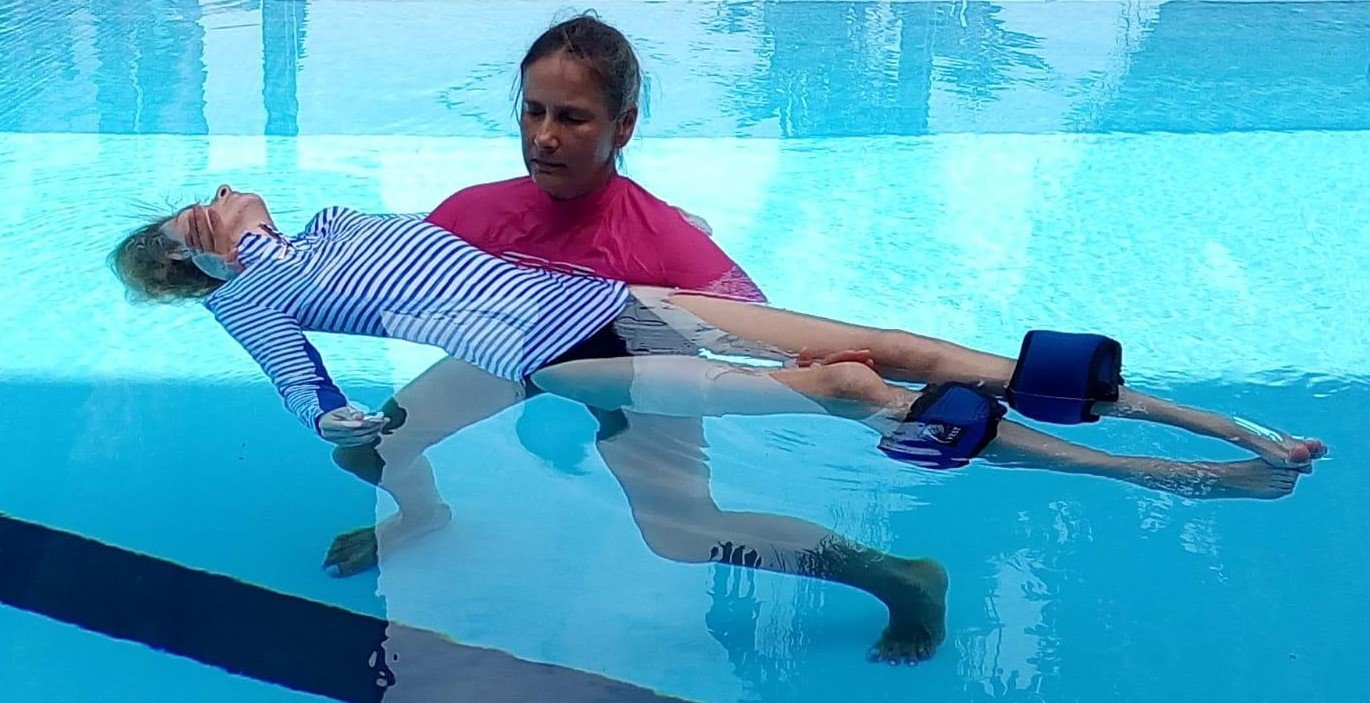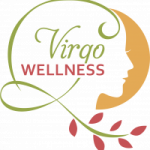 WATSU – a special form of aquatic bodywork therapy is usually performed in warm water close to body temperature and is profoundly relaxing. Wearing floats around your ankles allows you to float freely and weightlessly as the therapist moves your body around the pool in a slow, gentle, dance-like movements. Originally developed in California by Harold Dull in the early 80’s and initially used as a stretching technique, it has quickly spread around the world. Watsu practitioners and recipients alike have soon discovered the profound healing effects of this unique water therapy not only for the body but also for the mind and emotional state of a person, making it a truly holistic and highly beneficial form of therapeutic bodywork. It is now available at various Wellness resorts across the globe, including the Chivasom International Health Resort in Thailand, where I have been fortunate to manage the Holistic team and had my first experience with Watsu.
WATSU – a special form of aquatic bodywork therapy is usually performed in warm water close to body temperature and is profoundly relaxing. Wearing floats around your ankles allows you to float freely and weightlessly as the therapist moves your body around the pool in a slow, gentle, dance-like movements. Originally developed in California by Harold Dull in the early 80’s and initially used as a stretching technique, it has quickly spread around the world. Watsu practitioners and recipients alike have soon discovered the profound healing effects of this unique water therapy not only for the body but also for the mind and emotional state of a person, making it a truly holistic and highly beneficial form of therapeutic bodywork. It is now available at various Wellness resorts across the globe, including the Chivasom International Health Resort in Thailand, where I have been fortunate to manage the Holistic team and had my first experience with Watsu.
Vivien Tan after having had the pleasure of experiencing Watsu, says: “A good practitioner enables you to feel safe, nurtured, comfortable and vulnerable, all at once. The practitioner then ‘tunes’ into your body and guides you, launching into stretching, twirling, curling and twisting movements, allowing your body to float freely. Like an aquatic dance, you glide through the water together as the therapist pulls you, and your spine starts to snake and your limbs start to sway naturally.
Vivien points out that Watsu is “a suitable treatment for people with trust issues, or ones who have experienced trauma in the water, water healing can feel liberating and soothing as you give in to the therapist and learn to trust them completely. So it not only calms the body, but also the mind and spirit. It is even believed to help heal wounds of separation and renew the sense of connection and oneness we share with others.”
Further on, Vivien refers to Steve Karle, a Watsu and Craniosacral therapist, who teaches at the British School of Aquatic Bodywork’s Foundation, introduced and developed Watsu for Aman resorts, and practices at London’s first Watsu pool at Hotel Café Royal’s Akasha Holistic Wellbeing Centre. He says: “Shock and trauma, whether physical, emotional or psychological, are events that are experienced within our bodies; they are defined by a ‘fight-or-flight’ situation. When there is no way to fight or flee, the nervous system freezes as a self-defence mechanism. This response mobilises a great deal of energy in our bodies, and after coming out of the freeze response, it often remains trapped in our system unless we know how to release the charge. By allowing the body to naturally unwind in the freedom of water, such pent-up energy can find its way towards expression and integration.”
Recalling her own experience of Watsu, Vivien then says: “The concept of time disappears, and, in its place, you’ll discover a new sense of being that emerges. You succumb to the process, completely surrendering control and, by now, the chatter in your mind has long gone, and your worries are literally floating away, providing space for creative thought.”
 “The space of the pool begins to feel infinite, like the ocean or the sky,” says Watsu master Michael Hallock, who hosts regular training retreats across the globe and offers Watsu sessions at Fivelements Bali and Hong Kong. “Time becomes relative as your mind recedes into a dream-like state where sensations and images merge. Perhaps you sense yourself as a baby in your mother’s womb. Within this space of deep peace and relaxation, memories and emotions may also surface, and reminders of experiences finally find the receptivity to be met and integrated. The constant struggle with life also slips away, opening into a newfound acceptance of life, of yourself. A deep gratitude arises. Even tears may mingle with the water, and you feel a deep connection to this life.”
“The space of the pool begins to feel infinite, like the ocean or the sky,” says Watsu master Michael Hallock, who hosts regular training retreats across the globe and offers Watsu sessions at Fivelements Bali and Hong Kong. “Time becomes relative as your mind recedes into a dream-like state where sensations and images merge. Perhaps you sense yourself as a baby in your mother’s womb. Within this space of deep peace and relaxation, memories and emotions may also surface, and reminders of experiences finally find the receptivity to be met and integrated. The constant struggle with life also slips away, opening into a newfound acceptance of life, of yourself. A deep gratitude arises. Even tears may mingle with the water, and you feel a deep connection to this life.”
Vivien then continues: – Water healing has a profound therapeutic effect on the body. The buoyancy of the water allows the spinal column to be moved in a way that isn’t possible on land. Therefore, it can relieve acute pain, enhance lymphatic and blood circulation, activate neuro-pathways for healing, decrease anxiety, decompress the spine and joints, as well as induce relaxation and improve sleep and memory.
So who exactly is it for?
“Anyone who’s willing to experience something new and unique,” says advanced Watsu and water-dance practitioner Isabella Matrundola who offers sessions at Fivelements in Bali and Hong Kong. “Anyone who wishes to relax; re-centre; let go; release tension; rest; recharge; experience a renewed sense of fluidity and heart connection to self; anyone who has experienced a traumatic experience with water; all those who love water or fear it. My unconditional presence and each movement are an unspoken invitation to let go, surrender body weight and mind activity, and drop into a safe and nurturing space of grace. Releasing of deepest-held tensions, freeing the spine, soothing and calming the nervous system are just a few of the numerous physical benefits. What happens on the emotional and mental levels belongs to each individual experience, and again it can be anything from pleasant to deeply transformative, depending on how ready one is to meet the experience fully, by accepting the invitation.”

